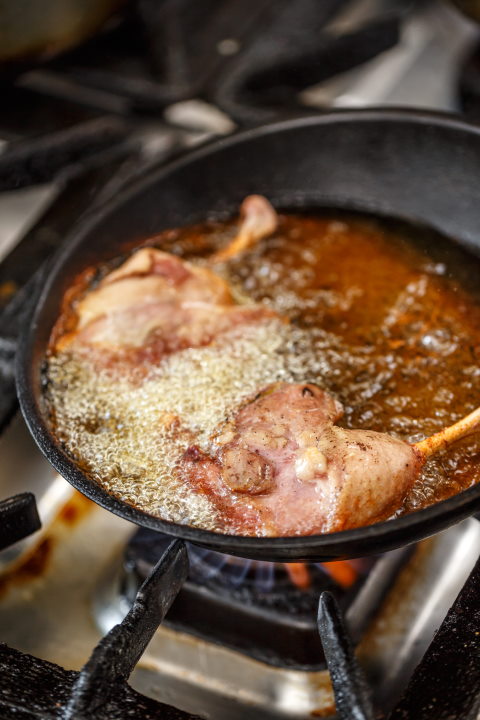It’s understandably tempting to dump the excess cooking oil or grease down the drain and dig in. After all, the sink is right there and the oil’s liquid anyway, so what could it hurt?
Pouring hot oil down the drain might not seem like a big deal in the moment, but even the occasional grease disposal shortcut can add up over time and result in a whopping plumbing bill.
And that is because, most hot oils don’t stay in liquid form once they’ve cooled.
Many oils, including butter, coconut oil, bacon fat or Crisco vegetable shortening, are in a liquid state when warm, but in a solid state at room temperature.
The oil, plus any food particles and debris that get washed down the drain, will congeal and stick around (pun intended) ― typically just behind where the pipe makes a U-bend ― the trap ― under the sink.
Even “Perma-liquid” cooking oils can still wreck your pipes.
Oils like olive oil and canola oil may not solidify at room temperature, but plumbers still advise against pouring them down the sink. That’s because these oils are hydrophobic, meaning they don’t mix with water very easily, so they end up coating your pipes instead.
Chasing the oils with hot water or dish soap doesn’t help.
An old wives’ tale will tell you to run hot water and dish soap down the sink after you pour oil down the drain, claiming to help the oil travel down the pipes before it thickens or solidifies ― but this isn’t as effective a strategy as you might think.
How to dispose of cooking oils and grease the right way.
Restaurants are required to collect oils and grease in traps and have them hauled off by a renderer (a company that specializes in cooking oil pickup and recycling) or risk being fined.
Considering hotels and restaurants in the U.S. generate around 3 billion gallons of used cooking oil per year (and wastewater treatment plants typically aren’t designed to handle contaminants like fats, oils and grease), the illegal practice of grease dumping would cause major drama in municipal sewer pipes.
Start by choosing a collection vessel for the oil, like an old plastic bottle, coffee can, or even a large Ziploc bag. Once the oil has cooled, carefully scrape or pour it into the vessel (a funnel can make the pouring process a lot easier).

